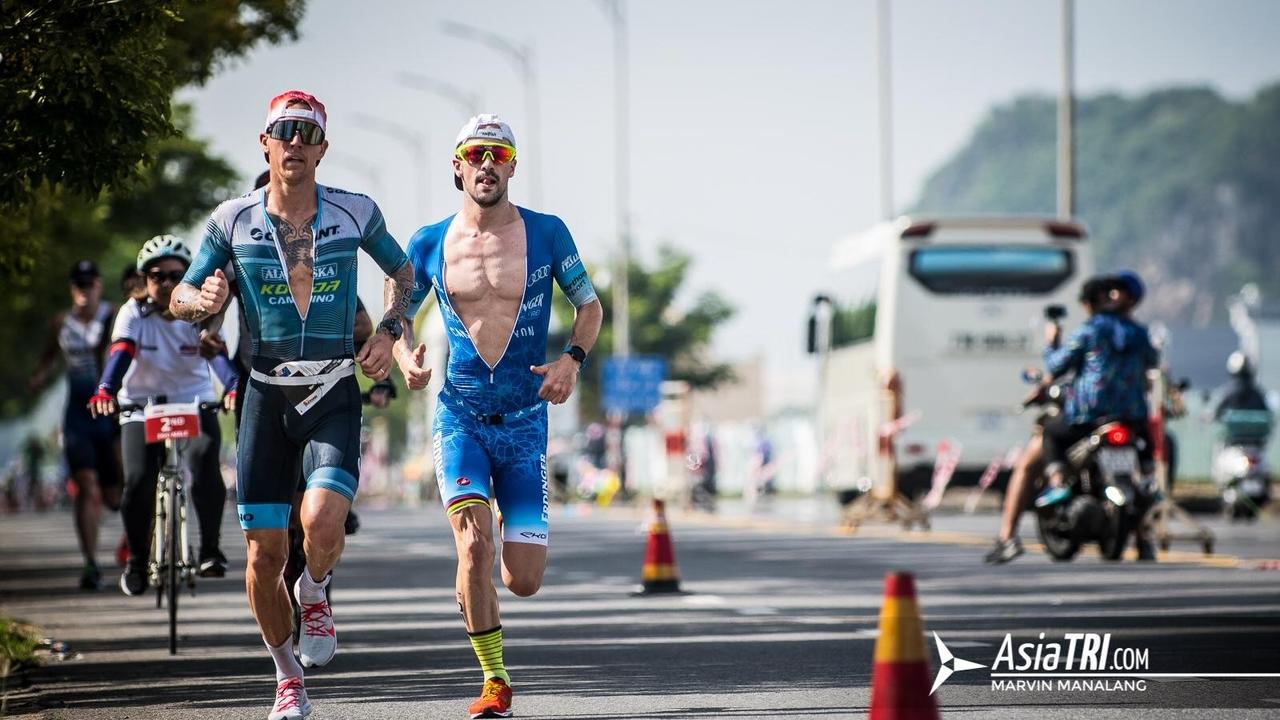What is your Maximal Fat Oxidation Rate?

Photo credit AsiaTri
By Ed Maunder and Dan Plews
Straight off the back of some great racing at this weekend's 70.3 Vietnam Asia-Pacific Champs, we thought it was high time for another blog post. Some epic racing from some of our athletes last week, and greatly deserved. Berks taking second to current back-to-back World Ironman Champ Patrick Lange, and Assad Attimimi and Merle Talviste taking age-group wins (& 2nd spots in the age-group overall).
In the previous two blogs we talked about our paper in Sports Medicine last year where we made estimates of fat and carbohydrate utilisation rates during Ironman Triathlon at different performance standards (8, 9, and 13-h finishing times). We also published the spreadsheet we used to do this online, where individual athletes and practitioners could plug in their own measured values from laboratory assessments to enable more precise estimates.
However, we understand that many individuals do not have access to the laboratory assessments, which can cost upwards of $150 USD and are only available in highly-specialist exercise physiology laboratories. As such, in this blog, we are going to try and help those of you without access to laboratory assessments to estimate your own rates of fat oxidation, which you can enter into our substrate utilisation spreadsheet to try and figure out what fuelling requirements might be necessary to best get over the line in a Long Distance Triathlon.
To get started, we are going to take you through a decision tree that will allow us to narrow you down to a likely range of maximal fat oxidation rates. This decision tree is based on another paper we published last year in Frontiers in Physiology that synthesised research studies making a measurement of this value as well as its underpinning determinants.
Maximal fat oxidation rate (MFO), and Fat Max are important considerations for Long Distance Triathlon. With the former being, your maximal ability to oxidise and use fat as fuel, and the latter the power/speed at where MFO occurs. Check out our previous blogs here for a little more information.
In the decision tree, we ask questions related to the following factors which have been shown to be key regulators of fat and carbohydrate metabolism during exercise:
- The carbohydrate content of your diet.
- Whether you do training sessions in a fasted state and how you fare on them.
- Your finishing time in an Ironman; and
- Your sex.
The carbohydrate content of your diet
As the carbohydrate content of your diet is the most critical regulator of substrate metabolism during exercise, this question is extremely important. We ask “Do you deliberately eat a diet low in carbohydrate?” By this, we mean a diet containing less than ~130 grams of carbohydrate per day. This is unlikely to be achieved without concerted effort, 130 grams of carbohydrate are consumed in individuals making a concerted effort to avoid them for example.
Whether you do training sessions in a fasted state and how you fare on them
You are likely to have lower rates of fat oxidation during exercise if you are eating a diet high in carbohydrate, do not perform fasted training sessions, or struggle to finish fasted training sessions without additional fuelling.
Your finishing time in an Ironman
The last question relates to your real or predicted Ironman finishing times, as performance standard or aerobic fitness has a relationship with fat oxidation rates in people eating mixed or high carbohydrate diets.
STEP 1: DECISION TREE

It is important to note that these values are estimates, and so ranges are provided for all possible answer combinations.
STEP 2: SUBSTRATE USE CALCULATOR
We recommend that you enter a value at the higher and lower end of your predicted range into our online spreadsheet to cover a likely range of individualised metabolic responses during an Ironman Triathlon.
To access and download the substrate use calculator, please provide us with your name and email address on the form below to download the file.
Have a play and we hope you enjoy "geeking-out" with some numbers! :)
-----------------------
Ed Maunder is a PhD student at AUT University. Together with his supervisors, Ed’s PhD focuses on the metabolic implications of environmental heat stress for endurance athletes.

Ed working his magic in the Physiology lab with Dan during one of his PhD studies
JOIN THE SQUAD
Take charge of your performance with proven training programs and workouts, adjustable to your needs, in the Endure IQ Training Squad.
LIMITED OFFER
